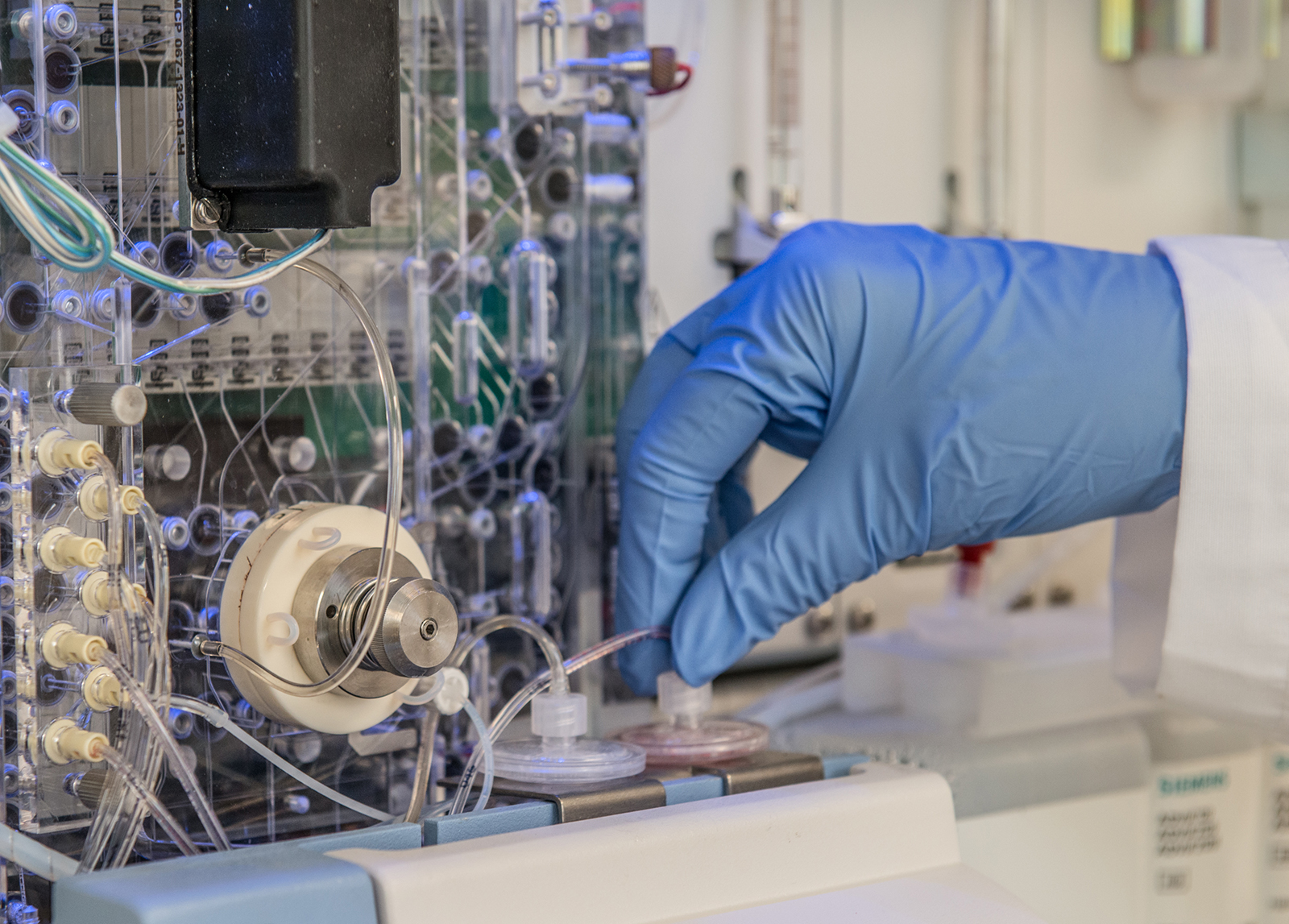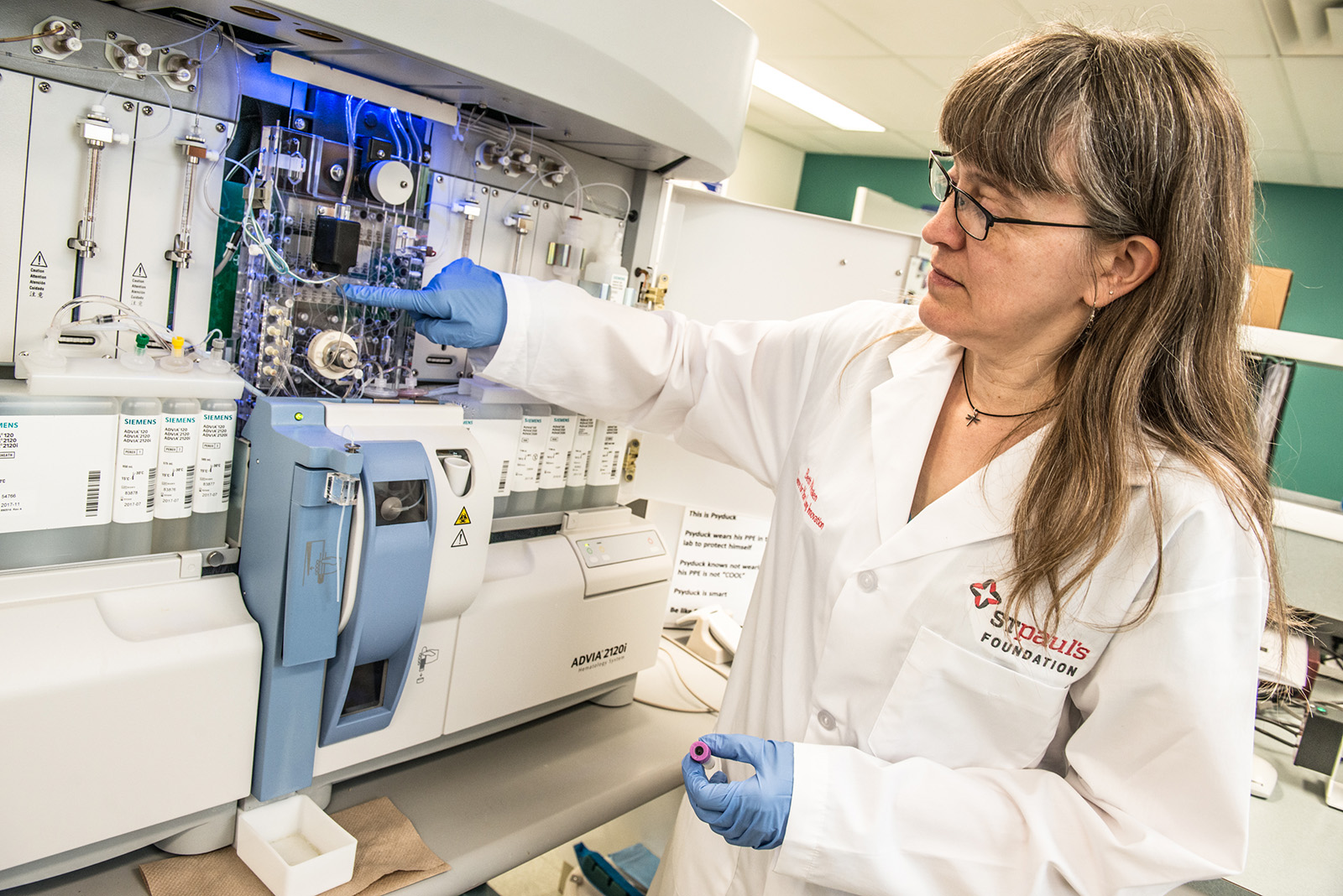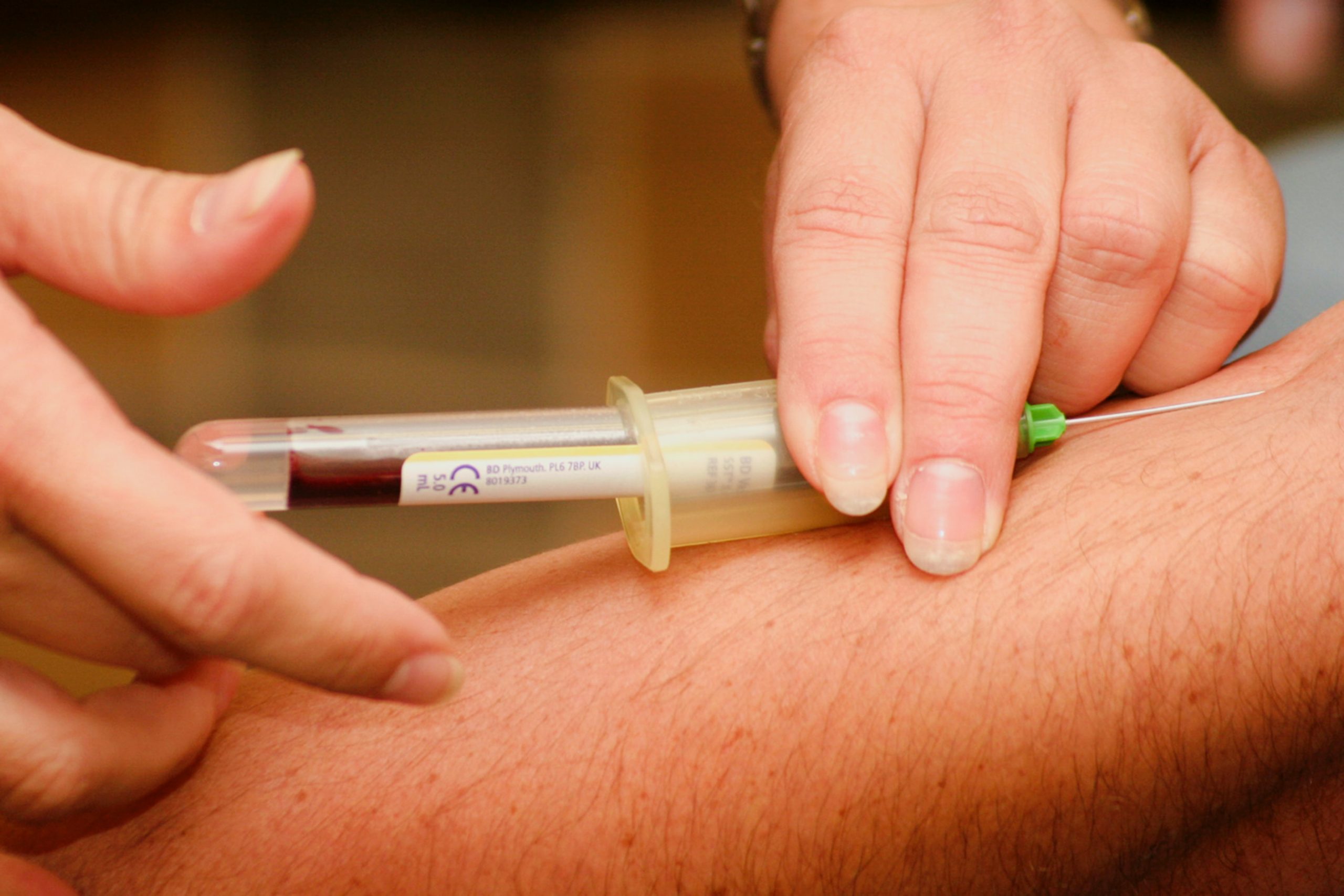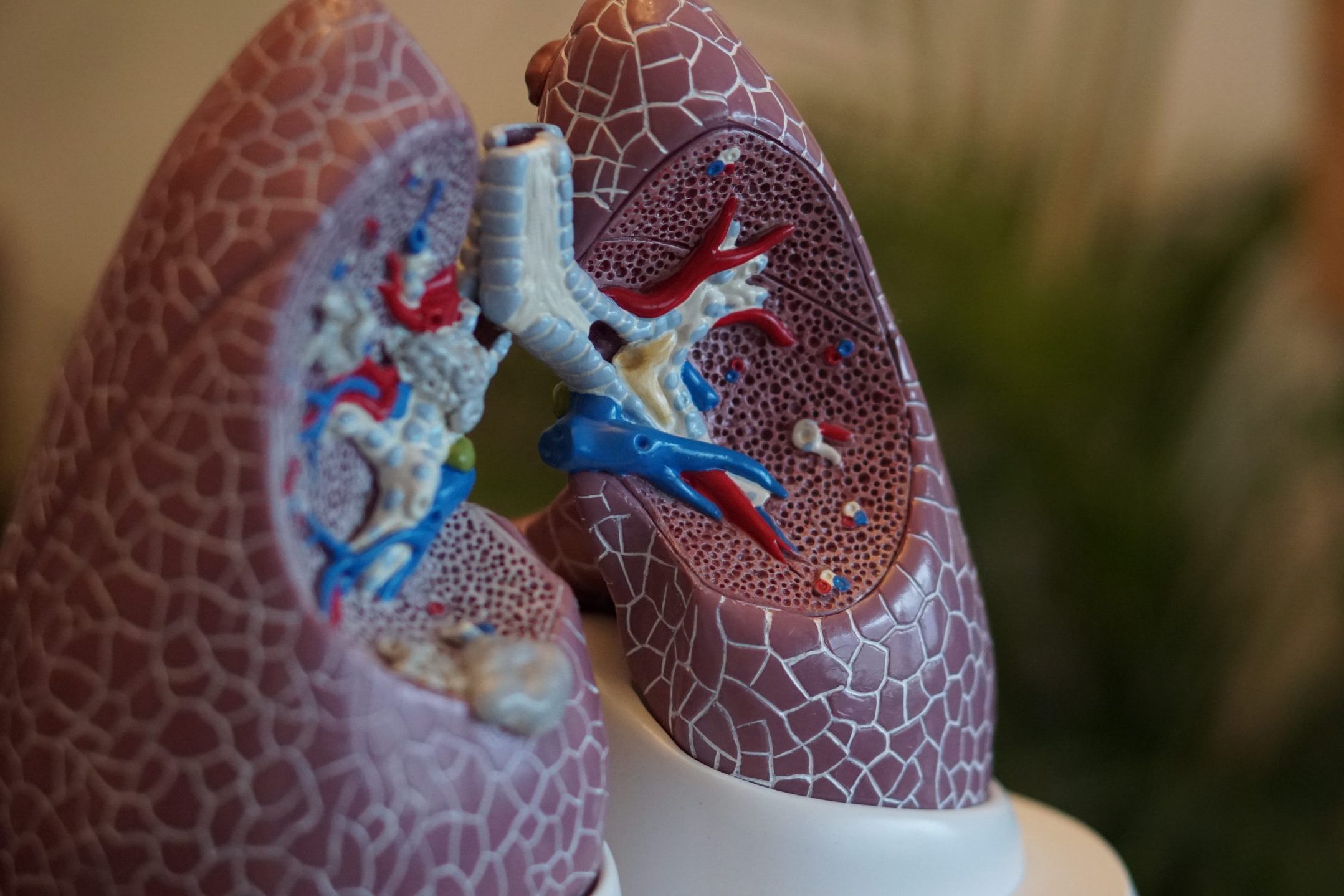
ServicesMolecular Phenotyping
Comprehensive characterization of biological samples
The Molecular Phenotyping Core Laboratory (MPCL) at the Centre for Heart Lung Innovation (HLI) is a fee-for-service, multi-user laboratory. The MPCL provides research tools and technical support to researchers and clinicians both within the HLI and Providence Healthcare, and external groups from the Lower Mainland research community and beyond.
Evolving from the fusion of the Flow Cytometry and Genotyping laboratories, and expanded by funding from the Canada Foundation for Innovation, the MPCL provides a unique environment for the complete characterization of biological samples. Members of the MPCL are involved in studies of cell phenotyping, protein profiling, genotyping and gene expression in order to further our understanding of the pathogenesis of cardiovascular, respiratory and systemic inflammatory diseases including transplant rejection, asthma and COPD. The MPCL consists of five integrated areas of focus: flow cytometry, genotyping, RNA analysis, multiplex protein analyses and laser capture microdissection. These core technologies combined with our specialized staff create an enhanced environment of synergy. This ultimately leads to a greater understanding of cardiovascular and pulmonary diseases that can be effectively translated into improved patient care.
Evolving from the fusion of the Flow Cytometry and Genotyping laboratories, and expanded by funding from the Canada Foundation for Innovation, the MPCL provides a unique environment for the complete characterization of biological samples. Members of the MPCL are involved in studies of cell phenotyping, protein profiling, genotyping and gene expression in order to further our understanding of the pathogenesis of cardiovascular, respiratory and systemic inflammatory diseases including transplant rejection, asthma and COPD. The MPCL consists of five integrated areas of focus: flow cytometry, genotyping, RNA analysis, multiplex protein analyses and laser capture microdissection. These core technologies combined with our specialized staff create an enhanced environment of synergy. This ultimately leads to a greater understanding of cardiovascular and pulmonary diseases that can be effectively translated into improved patient care.
NanoString nCounter Analysis System
The nCounter Analysis System utilizes a novel digital color-coded barcode technology that is based on direct multiplexed measurement of gene expression and offers high levels of precision and sensitivity. The technology uses molecular “barcodes” and single molecule imaging to detect and counts up to 800 unique transcripts in a single reaction. This technology can be used to analyze gene expression, single cell gene expression, microRNA expression, as well as miRGETM (miRNA and mRNA), copy number variation, lncRNA and ChIP-String studies.
Applied Biosystems QuantStudio 6 Pro Real-Time PCR System
The ABI QuantStudio 6 Pro is a high throughput real-time PCR system which allows for the detection and quantification of nucleic acid sequences. Key applications include gene expression quantification and the detection of single nucleotide polymorphisms (SNPs). The system is a versatile research tool and is equipped with a 384-well block and powerful software to facilitate efficient data analysis.
Luminex 200 System
The Luminex platform facilitates the multiplex analysis of up to 100 analytes simultaneously in serum, plasma, cell lysates or tissue culture supernatants. Using a bead based array approach, rapid protein or gene analysis can be performed using as little as 25μL of sample.
Beckman Coulter MoFlo® Astrios EQTM High Speed Cell Sorter
The Astrios is designed for high speed analysis and sorting of cells at rates of up to 70,000 cells/second. Specifically designed for research requiring Biosafety level II containment, this unique platform is equipped with 5 laser lines, 16 fluorescent parameters and can sort 6 subpopulations simultaneously into tubes or multiwell plates. With unparalleled speed and accuracy, the Astrios is capable of single cell deposition into 6 well to1536 well plates.
Beckman Coulter GalliosTM Flow Cytometer
The Gallios 4 laser, 10 color high resolution flow cytometer is designed for enhanced sensitivity when analyzing multicolor assays. The multitube carousel loader allows for high sample throughput and rapid flow cytometric analysis.
Miltenyi AutoMACS
The Miltenyi magnetic cell sorter rapidly and efficiently enriches live cell populations using magnetic microbeads specific to cell surface antigens or bound molecules of interest.
Siemens Advia® 2120i
The Advia 2120i hematology analyzer provides a 23 parameter hematology profile with 5 part differential for human or veterinary specimens using only 175μL of sample.
Technical Support
Staff at the MPCL provide professional technical support with over 20 years of expertise in the field of flow cytometry and molecular analysis. Our technicians have extensive training on all of our equipment and can help with all stages of your project, from planning and experimental design, to hands-on advice, troubleshooting and data analysis.

Beth Whalen
Core ManagerMs. Whalen holds a BSc from Memorial University of Newfoundland, and has been working at HLI for almost 30 years.
Ms. Whalen has extensive expertise in flow cytometry, biobanking, cell separation, and protein analysis, including all of the instrumentation at MPCL, experimental design, sample preparation, and data analysis.

Basak Sahin
MSc, TechnicianMs. Sahin holds a BSc in Molecular Biology and Genetics from METU and a MSc in Biomedical Sciences (U. Alberta).
She has research experience in biomaterials, tissue engineering, and drug/gene delivery. Ms. Sahin’s core expertise is in flow cytometry, and DNA/RNA analysis platforms such as PCR, NanoString and other technologies at the MPCL.





